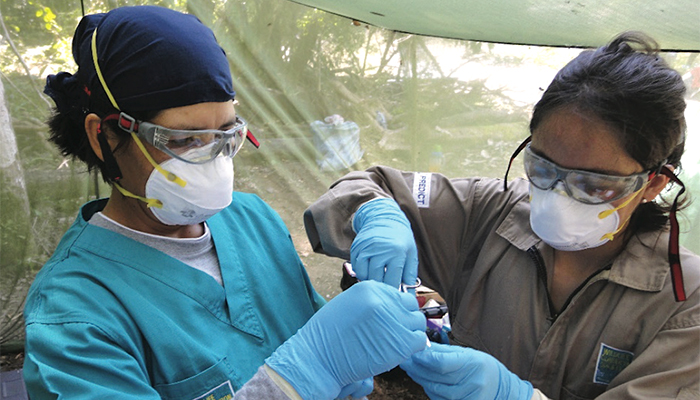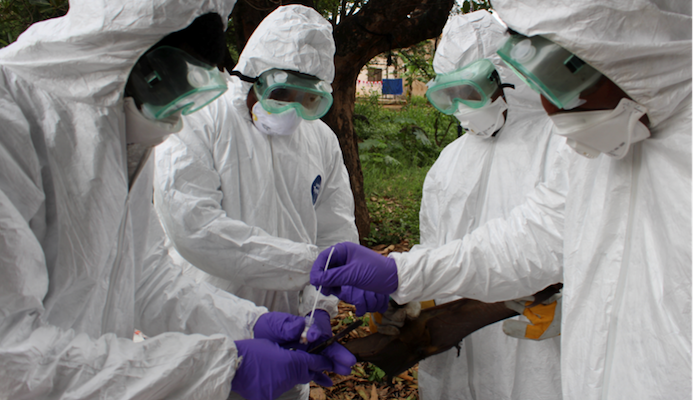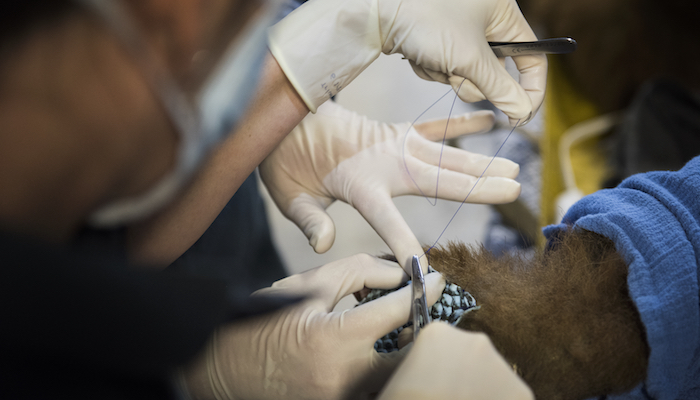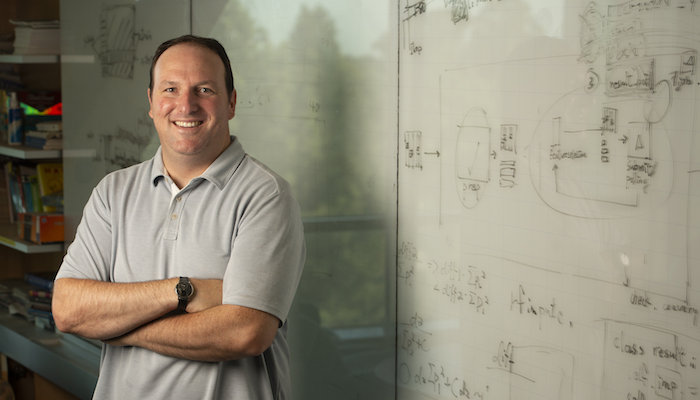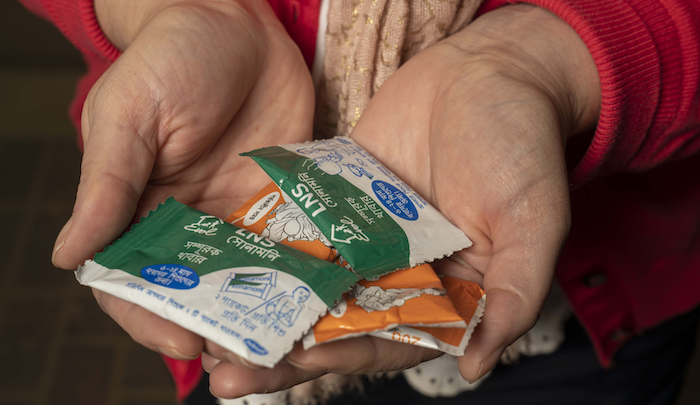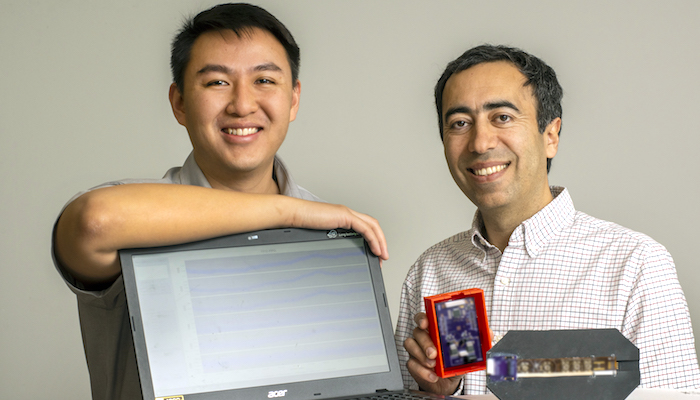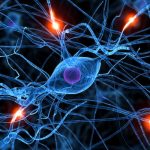$9M Grant from NIH for New Center to Develop Safe Genome Editing Tools
UC Davis launches center to advance genome-editing tools
New center will serve as the nation’s testing site for safety and efficacy
By Charles Casey
UC Davis today announced the launch of a new National Institutes of Health (NIH) funded research center dedicated to helping the nation develop safe and effective genome editing tools to treat patients with both common and rare diseases.
The UC Davis Nonhuman Primate Testing Center for Evaluation of Somatic Cell Genome Editing Tools will serve the nation’s research community and the public by supporting studies that advance the future treatment of human diseases with gene editing. It is part of an NIH program designed to treat as many human diseases as possible.
Gene-editing technologies hold great promise in correcting disease-causing DNA within the human body’s somatic (non-reproductive) cells.
The new UC Davis center is funded by an approximately $9 million grant from the NIH. It will provide nonhuman primate testing and support a range of funded projects for research institutions that are part of the NIH’s Somatic Cell Genome Editing (SCGE) Program.
Alice Tarantal, professor of pediatrics and cell biology and human anatomy in the UC Davis School of Medicine and Core Scientist and Unit/Core Leader at the California National Primate Research Center, will direct the new center. She will be working with key colleagues on the university’s Davis and Sacramento campuses.
“This is an incredibly exciting opportunity to advance translational research that will one day enable the treatment of a range of human diseases,” said Tarantal. “UC Davis has all of the relevant research expertise and capabilities, which made it a logical choice to be selected as the nation’s testing site for evaluating the safety and efficacy of new genome editing tools in nonhuman primates. We are pleased to be a member of the nationwide consortium focused on somatic cell genome editing, and to partner with the NIH in this crucial initiative.”
Tarantal added that many common disorders and rare diseases are caused by changes to the genetic code in humans. These may occur either by inheriting from parents or are the result of changes that occur during a person’s lifetime. Genome-editing technology offers a way to provide potential treatments and possibly cures for these diseases.
UC Davis will be the NIH-designated nonhuman primate testing facility that universities and research institutions around the country will use to evaluate their genome editing tools for future applications in human patients.
According to the NIH, many challenges remain before the new gene-editing techniques can be widely used in patient care to treat genetic diseases. Advances in genome editing made over the past decade — such as the well-known CRISPR/Cas9 system — now make it possible to change DNA code inside living cells. However, to avoid or minimize unintended consequences, genome-editing tools must be able to target very specific disease genes. The tools also must work selectively on only those cells affected by a disease, while not altering other cells.
“UC Davis is honored to have such an important role in the NIH Common Fund’s SCGE initiative. We will be supporting investigators nationwide, sharing our expertise and experiences that are grounded in collaboration and a commitment to advancing health for all,” said Tarantal.
The Center’s leadership includes David Segal, professor of biochemistry and molecular medicine, and faculty member in the UC Davis Genome Center; and Dennis Hartigan-O’Connor, associate professor of medical microbiology and immunology, and Core Scientist and Core Leader at the California National Primate Research Center.
“The modern tools of gene editing have given scientists the possibility to treat genetic diseases in ways that did not exist just a few years earlier,” said Segal. “However, before we can realize the dream of helping people, we must ensure these treatments are safe and effective. That is the work we will be doing now.”
Other key faculty members include Megan Dennis, assistant professor of biochemistry and molecular medicine and faculty member in the Genome Center; Nicholas Anderson, associate professor of public health sciences and director of UC Davis’ Clinical and Translational Science Center (CTSC) Informatics program; Daniel Tancredi, associate professor of pediatrics and faculty member in the Center for Healthcare Policy and Research; and Matthew Porteus, professor of pediatrics at Stanford University.
Among the key elements that UC Davis brings to the nation’s genome-editing capabilities are the following:
- Expertise in nonhuman primate models for translational research and within the NIH-supported California National Primate Research Center;
- Innovation in gene therapy and genome-editing technologies and tools, including the use of viral and non-viral vectors;
- The UC Davis Genome Center, with its full range of state-of-the-art instrumentation and experienced faculty;
- Leaders in database management, evaluation, and related translational resources through the UC Davis CTSC;
- A nationally renowned group of external advisors who will serve as members of the new center’s steering committee.
Contacts
Charles Casey, UC Davis Health, [email protected], 916-734-9048
Resources


